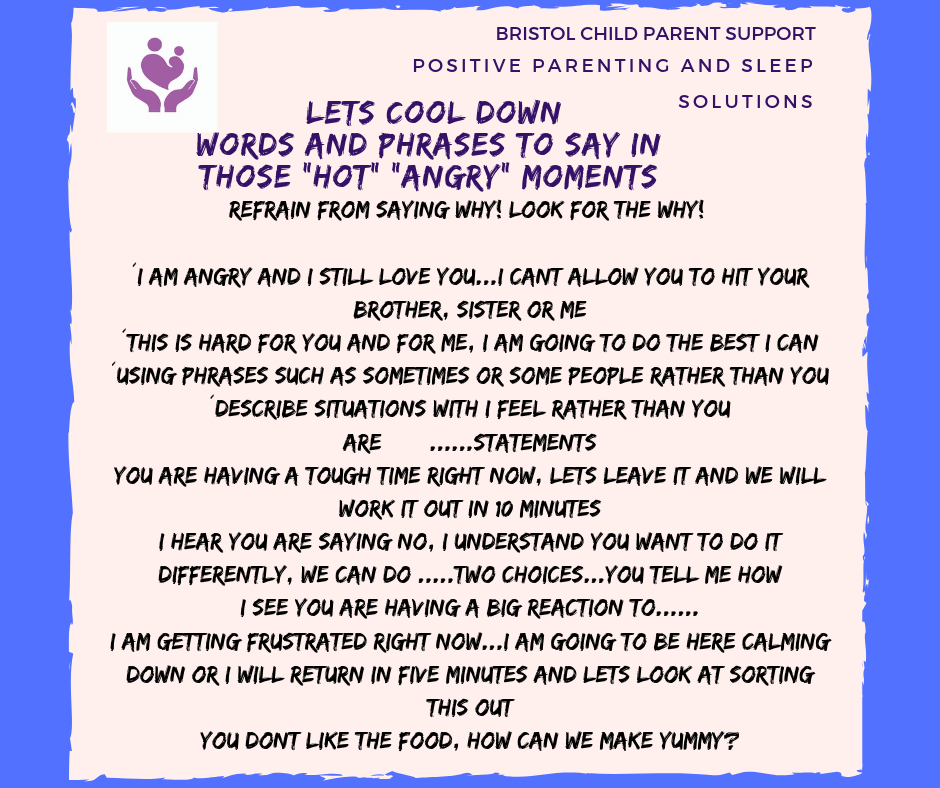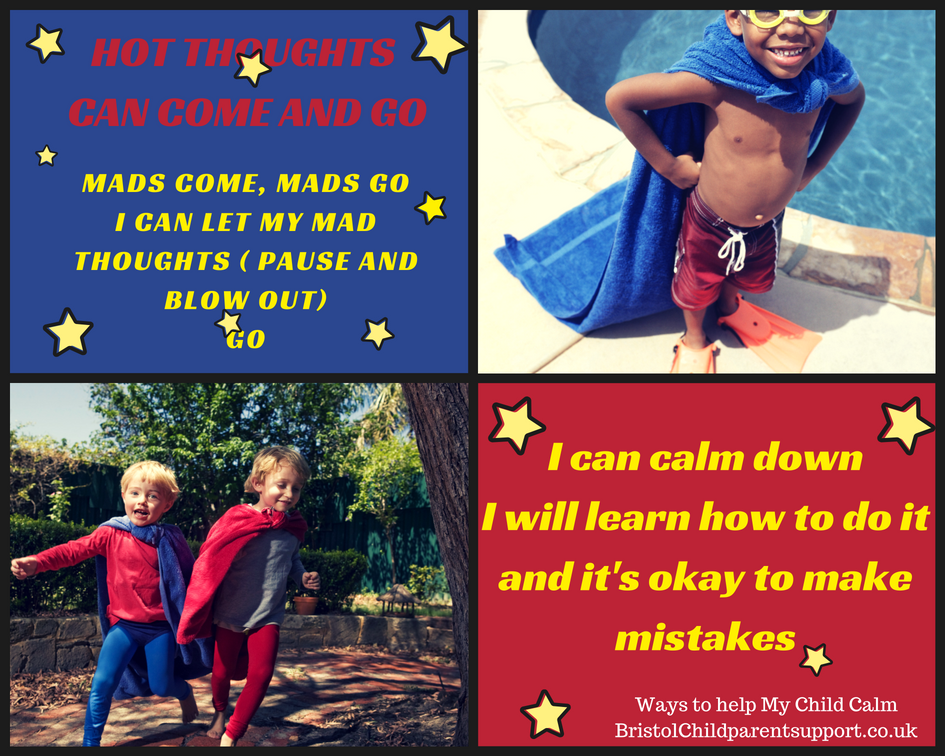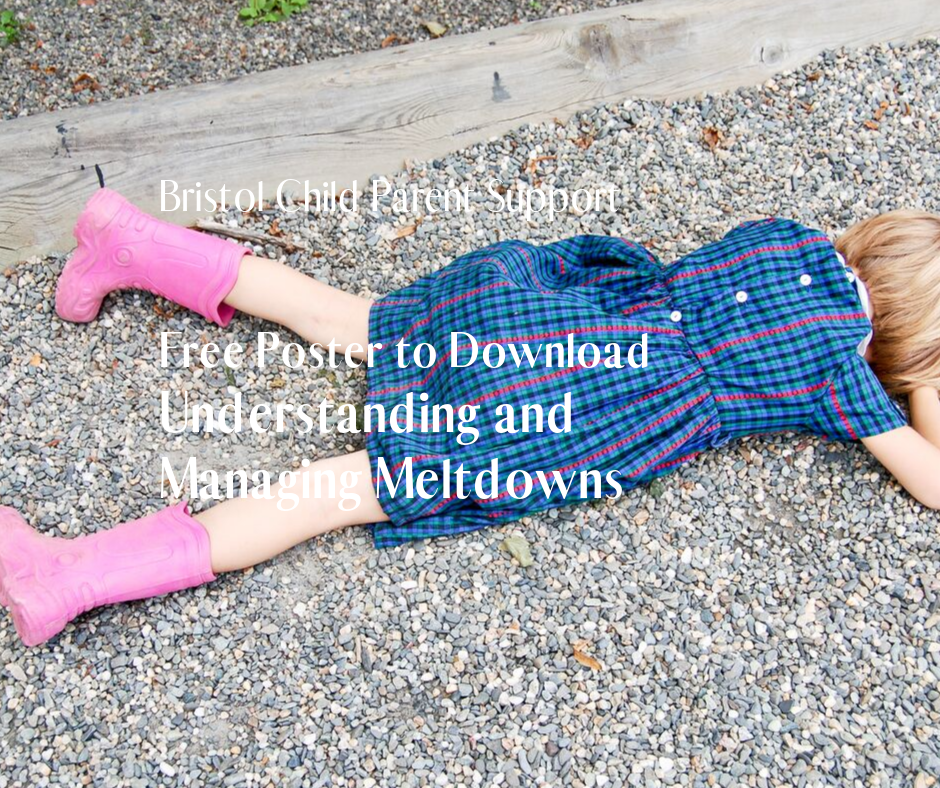Dealing with a child in a meltdown can be frustrating, challenging, and tiring. It will come as no surprise that emotional outbursts such as tantrums and meltdowns are one of the most common reasons to attend my practice. Sometimes, parents are not entirely clear about what is a” meltdown is. Hence, here are some thoughts and a free poster to help your child calm down.
Tantrums versus a Meltdown
Many child therapists distinguish between the two, but neither are diagnostic terms. If a tantrum is milder, you or your child may be able to calm down, and they may have some control; the duration may be less. A meltdown is an extreme outburst; your child may be out of control rapidly. You might observe:
- Your Child may go from 0-100 in seconds
- Your Child continues to be upset when other children have moved on
- Your Child takes a long time to calm
- Do they continue to cope with a situation like they did when they were younger and past their developmental age?
Why does my Child experience them?
Anger, like fear, is a primary emotion. It is biologically based, hardwired and virtually autonomic. Children have less control over primary emotions. They are limbic creatures and are not born with self-control. They are learning to develop self-control and emotional regulation. Just as every Child looks different, their responses to other emotions will also differ. Some children may have additional underlying problems, such as:
- ADHD
- Anxiety
- Learning and Processing Issues
- Speech and Developmental Delay
- ASC
- Trauma
- Low Mood
- Sensory Processing issues
Triggers for a Meltdown:
There may be many triggers for meltdowns, and some may be unique, but in my experience, they might include the following:
- Giving them a limit, saying NO!
- Separation a parent leaving or they might be leaving to go to school. Nightime separations
- Change, any change of routines and or transitions
- Injustice, sibling issues, unfairness and losing in competitions
What types of parenting to avoid during a Meltdown
1. Invalidating your Child’s feelings
When your child is upset, it is a powerful and intense feeling for them. To you, it may be nothing, so watch your words. You may unintentionally invalidate their feelings, which often leads to further escalation. You might say:
Don’t worry, honey; it’s just…..you will feel better later……let’s look at this……
2. Reacting back during a Meltdown
During a meltdown, your Child has lost all reason. Their Amygdala will be in mindless charge. They say all kinds of awful things that they don’t mean, such as:
I hate you, I hate myself, I want to die, I want daddy
Do you retaliate, how do you respond, and more importantly, do you:
3. Struggle to manage your emotions
Within the English culture, anger is not seen as a positive emotion. Furthermore, was anger or conflict managed or expressed when you were growing up?
- Were you allowed to express anger as a child, or did you always have to be a good child?
- Was one of your parents/siblings volatile, was the family organised to appease them?
- Emotions were never discussed, but you could feel the “atmosphere” as a child.
- Were there many rows, but you didn’t see or experience anyone “making up.”
Our parental models indeed come into play when we respond to our children. For example, if we were a ” good child” because anger was not allowed to be expressed, we may not understand why they behave this way; hence, shout, be defensive or cry. Therefore, it may be vital for you to seek support. Be kind to yourself; parenting is one of the most challenging jobs in the world, and asking for help creates a space for change. Do contact me
Effective Parenting Strategies
1. Safety First
If your chilChildhurting you or themselves, you must quickly make it safe. You might have to remove them if you are out in a park or stop driving until they are calm. Following this, they need to have a clear and consistent limit. It is helpful to discuss a safety plan before an actual meltdown. It’s essential to separate the behaviour from the child and externalise the behaviour from the child. Sit down and start a series of review meetings. Decide on a plan of action for when the you-know-what hits the fan. Discuss a safe place to go or calming techniques. Remember, it’s going to take time. Hence, it will not change overnight.
2. Validate their emotions
Validation comes in many forms, not just words.
- Using your presence, Sitting calmly and just listening
- Telling them you understand
- Using language such as my Facebook post below

3. Make a list of Calm Down activities together
Here are some ideas and a free Poster for your child:
- Always teach your children words for emotions. The more they can talk it out, the less they will “behave it out”.
2. Make a self-soothe box
3. Find a safe and calm place within your home; try not to use it as a punishment but as a solution.
4. Problem-solve with them. Find a big piece of paper and brainstorm solutions on what might help them to feel calm; there are further ideas on my >> Free Poster for your child>>
5. Help your chilChildelop self-talk. Everyone suffers from negative thoughts. Here are some ideas below:

6. Use Reinforcers for Positive and appropriate behaviour
Many parents get into a negative cycle, so spending time with your child is essential. Give them a positive and memorable time. Notice and say when they are managing to be calm.
7. Always reconnect following a meltdown

This is a hard one but always try to reconnect with your child following the meltdown. Hug, kiss and forgive.
When to seek help
All children have times when they feel and express emotions intensely. Therefore, as a professional, I assess the intensity, duration, stage of development and consistency. You may want to seek help when you observe them:
- Constantly responds to events in an extreme way
- Reaches a high level of intensity of emotion quickly
- It takes a long time to calm down after an upsetting incident
- Behaviour is regularly impacting on home and or school.
- Harming themselves or you regularly
- Has trouble working out causes, responses, and the effect of the behaviour
If you need support, do get in contact. I also run a Positive Parenting for Toddlers Workshop In November to help you strengthen your positive discipline skills.
Furthermore, remember to say I love you no whatever you do or say forever. When your child knows they are loved unconditionally no matter what, the connection and attachment between you will be secure for life, and everything is much easier. With Love Always Catherine



